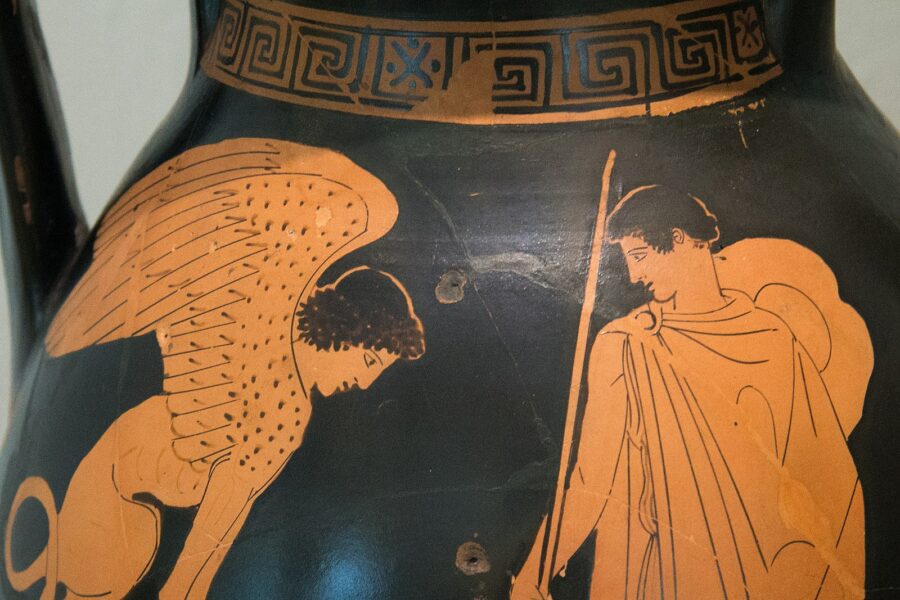
Recently, Classical Studies Program Director Dr. Elizabeth Thill attended a performance of Oedipus at the Indiana Repertory Theater in downtown Indy. It was amazing! Dr. Thill came home overly excited, chattered incoherently about it to her husband (who gave her the tickets for her birthday, accompanied her, had seen what she’d seen, and probably didn’t need a play-by-play recap), then fell asleep like a toddler after too much cake at their birthday party.
The play Oedipus Rex (or Tyrannous if you prefer Greek, and yes, that’s like the dinosaur) by Sophocles is notoriously difficult to stage. The play is a passionate character study, a whodunit, and a deep dive into ancient but timeless questions about fate and the gods. It involves lots of shouting—just so much shouting—of lines that, without a good adaptation, sound like a name-check of Greek gods. And it covers such delightful topics as (takes deep-breath)…murder, plague, infanticide, incest, non-consensual sex, suicide, and, most famously, self-harm. The play follows the character of Oedipus, King of Thebes, as his well-intentioned efforts to rid the city of a plague lead to his own destruction and the destruction of everyone he loves. It inspired the famous Freudian concept of the “Oedipus Complex,” which illustrates both that Freud doesn’t seem to have understood the play, and also that it’s not exactly child friendly. Students in Dr. Thill’s current CLAS-C 310/321 Ancient Drama and Film course can attest to that as well.
The staging at the IRT handled all these issues with skill and grace. The acting was superb, and the adaptation by David Daniel moves the text into the modern era, remaining true to the spirit and close to the language of the original, while not being weighed down by a need to translate every single phrase listing what god lives where on what mountain in Boeotia. So keep an eye out (see what I did there?) for the next performance at the IRT, especially if it’s Greek.


